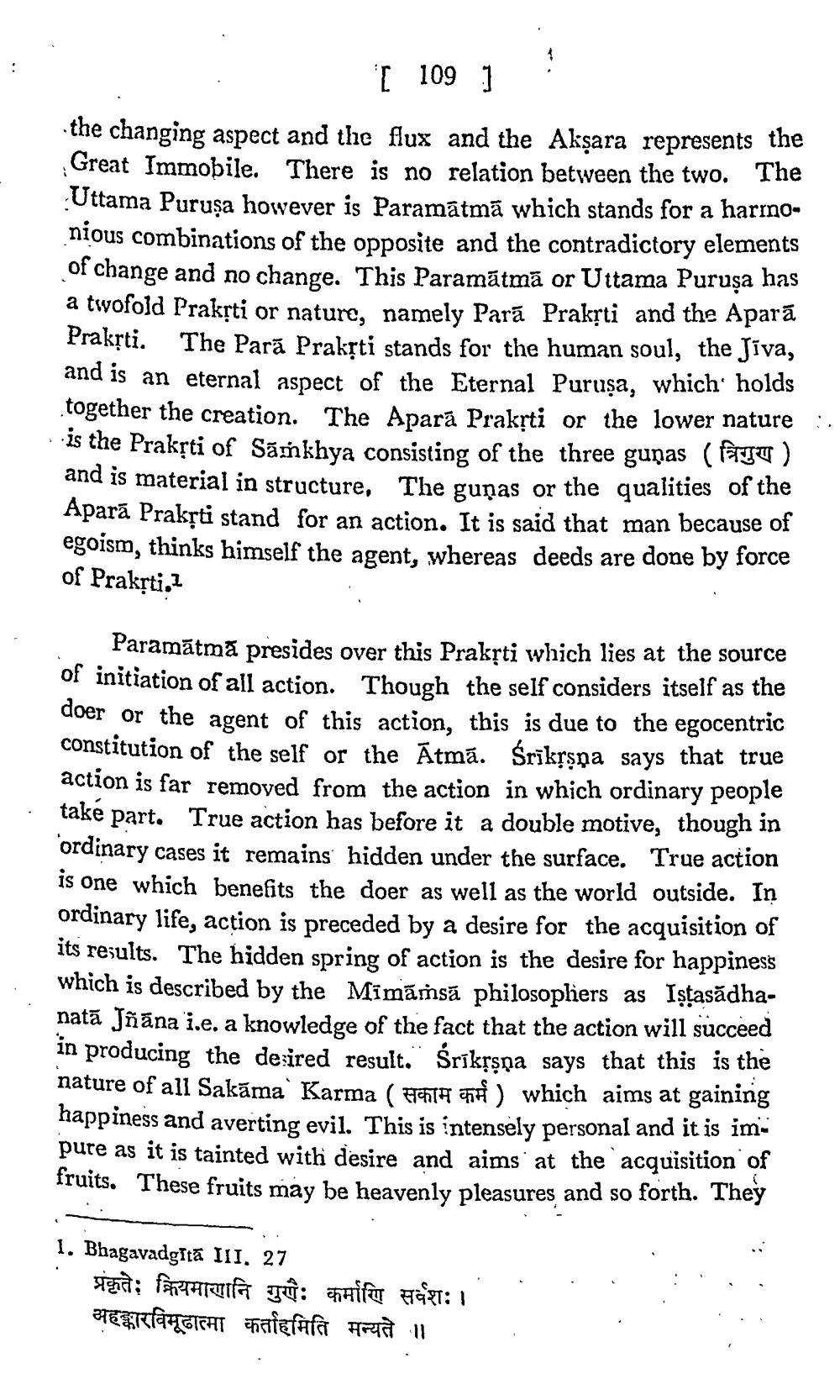________________
[ 109 )
the changing aspect and the flux and the Akşara represents the Great Immobile. There is no relation between the two. The Uttama Puruşa however is Paramātmā which stands for a harmonious combinations of the opposite and the contradictory elements of change and no change. This Paramātmā or Uttama Puruşa has a twofold Prakrti or nature, namely Pará Praksti and the Aparā Praksti. The Parā Prakřti stands for the human soul, the Jiva, and is an eternal aspect of the Eternal Puruşa, which holds together the creation. The Aparā Prakrti or the lower nature :. is the Prakrti of Sãmkhya consisting of the three gunas (FIT ) and is material in structure, The guņas or the qualities of the Aparā Praksti stand for an action. It is said that man because of egoism, thinks himself the agent, whereas deeds are done by force of Praksti.?
Paramātmā presides over this Prakrti which lies at the source of initiation of all action. Though the self considers itself as the doer or the agent of this action, this is due to the egocentric constitution of the self or the Ātmā. Śrīkļşņa says that true action is far removed from the action in which ordinary people take part. True action has before it a double motive, though in ordinary cases it remains' hidden under the surface. True action is one which benefits the doer as well as the world outside. In ordinary life, action is preceded by a desire for the acquisition of its results. The hidden spring of action is the desire for happiness which is described by the Mīmāmsă philosophers as Işțasădhanatā Jñāna i.e. a knowledge of the fact that the action will succeed in producing the desired result." Śríkļşņa says that this is the nature of all Sakāma' Karma ( HT which aims at gaining happiness and averting evil. This is intensely personal and it is impure as it is tainted with desire and aims at the acquisition of fruits. These fruits may be heavenly pleasures and so forth. They
1. Bhagavadgita III. 27
प्रकृतेः क्रियमाणानि गुणैः कर्माणि सर्वशः। अहङ्कारविमूढात्मा कर्ताहमिति मन्यते ॥




